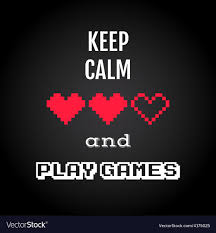Let's face it, Christmas may be a celebration of Christ's birth, but the holiday shopping society added to it gives us all a bad case of anxiety. Even if you aren't losing it trying to get a perfect gift for your in-laws, parents, spouse, or sibling, all this Covid 19 business is making everyone a bit stir-crazy and anxious. Today we are going to talk about how to calm down without medication (unless you really do need it, and there is no shame in needing it).
 |
| Image from Harvard Health - Harvard University |
For starters, I'm going to tell you that if you have a legitimate disorder that needs medication this post is not here to shame you. You should listen to any therapists and doctors that are trained to deal with mental illness. Don't try to treat it all by yourself. Get help if you are considering or having thoughts of suicide. Please don't think of me as a doctor. While these may help with your anxiety, I am not a doctor.
What I do know is that disorders of anxiety interfere with basic functions and living well consistently, so if that is the case find a professional. Now that you know I have no medical degree (researching on the internet does not make you a doctor or an expert), we go onward.
The methods.
I'm not going to lie. I tend to deal with a mind that gets overwhelmed by my own ambitions, dreams, and weirdness. I may sound good (at least I hope I do, anyway) on my blogs, but talking to me in person reveals that I sound better on paper than in person most times, unless there is a script in my hand. Life comes with decisions, lots of them, and sometimes they come all at once. As strange as it sounds, making a decision and committing to it is one way to push past your anxiety. Do something, anything to keep moving in a direction that you feel is right. On this topic, I also add that you need boundaries from taking on others' problems. If you can't handle an extra task you can and should say no before your stress levels go too high.
 |
| photo by Blessing Manifesting |
What is good for your heart (physical heart) is good for your brain. Omega 3s can be found in supplements, nuts, grass-fed beef, and fish. Apparently, taking care of your heart is extremely good for your brain and may help combat anxiety. Another thought, from my own experience, is that eating right and drinking water is entirely necessary to keep your mental state balanced. Blood sugar being balanced is essential to normal body functions. If you take a moment to care for your basic needs you do so much better in the long run. You may actually be more productive. To be sure, sleep. Read that again. Don't be pulling all-nighters. Exercise and take care of yourself. Body and mind are connected, so please don't neglect your body or you will regret it.
Mindfulness, something I just talked about last blog (can be found in the archives), is focusing on your present instead of having worries over your future. Anxiety is triggered by worries about future events. This practice has been called grounding by therapists. If you are a Christian that doesn't know if it is biblical to practice this, go in my blog archives and look for Mindfulness and Christianity. I have the pros and cons right there for you to ponder. With this, slow breathing has been proven effective and is included in some mindfulness exercises. This breathing proves to your body you are not in need of a fight-or-flight response and are okay.
We all have been watching social media like hawks, and that is where the rumors fly like no other place on earth. If you have someone on there that keeps posting rumors, dark things, bothering you, bullying you.......etc you need to unfollow and unfriend some people. If people are not your issue, turn off social media. Decreasing your attention to all the flying rumors, political posts, dramatic humans, and doomsday false news is going to help you keep your head in the positives. This does not mean you can't talk about the negatives; talk about your problems and deal with them. What I'm saying here is that you should talk it out and move on, instead of staying in your pit of despair to moan over social media, or moan alone.
If you think playing is only for kids, well, stop. Play gives us a break and the rest we need. Go hang out
with friends (responsibly) and do some form of art or sports. Turn on Netflix, Youtube, a good movie, and stop working for a while. Put simply, do what relaxes you. Whether it be gaming, films, arts, or Dungeons and Dragons, have fun. We were made to balance our work and play together. All work creates too much stress build-up. Give yourself permission to pull out your old Nintendo DS games or do some adult coloring. Play those Nancy Drew PC games. Watch someone play a game, even, if you have no desire to game. If you are losing your mind because you are constantly working you need this mental break before you break yourself. That being said, don't be all play, either; this is a balancing act.
Talk, speak, say what needs to be said. Tension and anxiety, in some cases, go hand-in-hand. To end the situations that cause this there needs to be a conversation or some sort of resolution. Try to solve the conflict as calmly as possible. If you can't, reread the paragraph on unfollowing people. You may have to make that tough choice if someone will not bury the hatchet. All else fails, leave them standing alone with their hatchet, and bury your own hatchet. I would highly suggest solving the conflict before you attempt to do so, but whatever you do, say and do what you need to. End that tension.
I know they say we should be six feet apart, but physical contact like hugging is good for reducing stress. Find a friend who is comfortable with hugs, give affection to your family, kiss your spouse or significant other, etc. Social distance might help us not catch Corona Virus, but it is killing us mentally. Suicide rates are higher this year and possibly worse than the virus itself in numbers. In a pandemic, there are no right answers. I do think we shouldn't be hugging everyone we see. However, we do need the affection of friends and family as much as we needed it before. Be responsible, but make sure you are getting that affection from somewhere. Cats and dogs are especially good at that.
A cozy fire in the fireplace, crazy as it sounds, could help you deal with your anxiety. If you are legitimately considering setting fire to yourself upon reading that sentence immediately call your doctor (if you think I'm kidding, I'm not). You may need some extra help from more qualified sources in that situation. That dark thought aside, heat is supposed to help. Sun, saunas, a warm bath or shower, and fireplace seats with hot cocoa or tea could potentially help regulate your mood. People in Alaska during the time of year where there is no sun do more suicide, so I personally believe this to be true. While you're at it turn on your essential oil room sprayer to lavender. Put some oil on your wrist or your pillow. Lavender is proven to relax you. Herbal remedies, in this same way, may help.
As a coffee drinker, this paragraph saddens me. Caffeine can make our anxiety worse. If you have it badly enough you need to skip the coffee and caffeinated tea. If you think it may help, you don't have to give all your coffee dreams up. Moderation is a wonderful idea. Test scaling back on caffeinated beverages and see how you feel. You can add a beverage that isn't caffeinated in its place if you like. Basically, caffeine gives our nerves a jolt, thus causing more anxiety. Decaffeinated tea can be quite relaxing.
If you drink lots of alcohol, you'll be sad at this paragraph. Alcohol can increase anxiety, depression, and irritability into the next day. It is not your friend if you deal with serious mental issues. Please don't hear me say it is evil. On the contrary, I say that it is an inanimate object and will only hinder you when misused, just like every substance on earth. I'm saying that if you have mental issues that are major you shouldn't use it to "self-medicate". A beer a few times a month is not misusing, but five drinks a night for days or weeks is not healthy. Please make sure you don't misuse this liquid refreshment.
Understanding yourself
Do you know your triggers? Do you know what sets you off and makes you spiral? This is an important question. If you don't you could be triggered daily and not know it. This is where journaling your thoughts and analyzing them a day or so after can help you understand yourself. Process your thoughts and emotions. It does help.
 |
| photo by Masha Plans |
One way to figure out triggers is to write out three things that stressed you out at the end of the day. After a while you find the pattern if there is one. If you find that pattern you can find the triggers. After that, and don't skip this part, write out three things you did well. You often overlook what you've done well. Celebrate what you did well. Reward yourself.
Release your emotions. Let out your stress. Find a controlled environment to do so. This can be going out in the woods to scream (not to be done in a public park) or journaling, like me, on a laptop word document unfiltered. It can be finding a friend and having a vent session. Don't make a friend as on edge as you are, but you can phone-a-friend and talk it out. Find a safe space to release your pent-up emotion. You learn what your emotions are and how to handle them safely through this.
Introverts and parties with lots of strange people historically don't get along, especially if you didn't drive yourself and your friend has no intention of leaving early. Picture it, a room full of people and you went with your extroverted friend to a party with lots of small-talk and no dog to spend time with. What do you do? Well, you plan an exit strategy and drive yourself to parties (if possible). There is more control there and thus the anxiety lessens.
Sources:
https://www.heysigmund.com/anxiety-without-medication/
https://www.healthline.com/health/effective-ways-to-fight-anxiety-without-drugs
https://www.reidhealth.org/blog/6-tips-for-managing-anxiety-without-medication
https://pzizz.com/blog/articles/how-to-fight-anxiety-without-medication/
https://www.psychologytoday.com/us/blog/integrative-mental-health-care/201702/treating-anxiety-without-using-prescription-medications

















